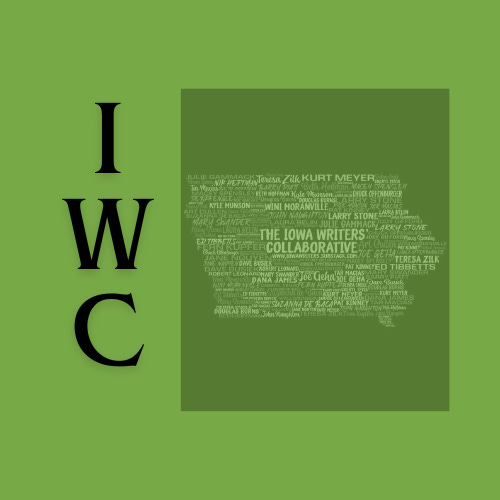Can a vice presidential nominee deliver their home state? Not always.
Digging deep into 72 years of Electoral College presidential election results
Donald Trump seemed to pay little attention to finding a vice-presidential nominee who might deliver a home state that could make the difference in the outcome of a close election.
Kamala Harris appears to be paying a great deal of attention to that issue in making her selection, expected soon.
The idea of picking a VP from a state that might be in play used to make a great deal of sense to me. Until I spent some time examining the results of the past 19 presidential elections — every presidential election since the end of World War II — 1948 - 2020. Now, it seems a bit more complicated.


In the 19 elections since World War II, a VP candidate has failed to deliver his/her home state for their party in 11 elections, 29 percent of the time. The ticket of the VP candidate failing to carry his/her home state lost the election in 10 of these 11 instances.
The surprise, however, was that a VP nominee failing to carry a home state does not appear to make a difference in the election result.
Maybe this is because the campaigns run by these losing tickets often have faced multiple problems, which likely made the election outcome the result of multiple issues. Still, the findings of this deep dive into 72 years of electoral college results did produce some things of interest and some surprises.
One instance of a losing VP failing to carry his own state that is worth a close look is the 2004 presidential election, George W. Bush’s victory over John Kerry. Bush’s run for a second term that year was aided by the VP nominee on the Democratic side, John Edwards, who failed to deliver his home state, North Carolina. If Edwards could have delivered North Carolina for the Democrats, it would have shifted 15 electoral votes to Kerry. That would have left Bush with 271 electoral votes, just one more than the minimum required for victory. It still would have been a Bush victory – unless just one other state also could have been shifted somehow.
The one VP who lost his home state while his ticket still won the presidency was Spiro Agnew in 1968. Richard Nixon won the presidency overwhelmingly. Agnew’s failure to carry Maryland for Nixon had no impact on the election result for Nixon.
Presidential candidates failed to carry their home states four times in the 19 elections. Three of these four presidential candidates lost their elections, but the results would not have changed even if they had won their states.
One election – George W. Bush’s victory over Al Gore in 2000 – would have changed if Gore had won his home state, Tennessee, as he did in two previous presidential elections as Clinton’s vice-presidential nominee. It would have pushed Gore to 276 electoral votes without Florida, six more than needed to win the election. The Florida result would not have mattered.
For Gore to have won Tennessee, 40,000 votes in the state would had to have switched from Bush to Gore. Two million votes were cast in the presidential election in Tennessee. For comparison, Bill Clinton had carried Tennessee with Gore on the ticket as vice president by 43,000 votes in 1996 and 70,000 votes in 1992.
The VP candidates who failed to carry their home states and their presidential running mates:
· Paul Ryan, Republican, Wisconsin, 2012; presidential nominee Mitt Romney
· John Edwards, Democrat, North Carolina, 2004, John Kerry
· Jack Kemp, Republican, New York, 1996; Bob Dole
· Lloyd Bentsen, Democrat, Texas, 1988; Michael Dukakis
· Geraldine Ferraro, Democrat, New York 1984; Walter Mondale
· Sargent Shriver, Democrat, Maryland, 1972; George McGovern
· William E. Miller, Republican, New York, 1964; Barry Goldwater
· Henry Cabot Lodge, Jr., Republican, Massachusetts, 1960; Richard Nixon
· Estes Kefauver, Democrat, Tennessee, 1956; Adlai Stevenson
· Earl Warren, Republican, California, 1948; Thomas Dewey
After the two George W. Bush elections, there are only four other elections in which the Electoral College margin was less than 100 votes:
· Joe Biden’s 74-vote margin over Donald Trump in 2020,
· Trump’s 77-vote margin over Hillary Clinton in 2016,
· Jimmy Carter’s 57-vote margin over Gerald Ford in 1976,
· John F. Kennedy’s 84-vote margin over Richard Nixon in 1960.
The two biggest victories, both 500-plus electoral vote margins, were Ronald Reagan’s victory over Walter Mondale in 1984, and Richard Nixon’s win over George McGovern in 1972. Mondale and McGovern each carried just one state plus the District of Columbia.
Only four presidential nominees over the past 19 elections failed to win their home states.
In addition to Al Gore in 2000, discussed previously, Adlai Stevenson, Democrat, lost Illinois in both of his presidential runs against Dwight Eisenhower – 1952 and 1956. The fourth presidential nominee in this group is George McGovern.
McGovern failed to carry his home state, South Dakota, when he was the Democratic nominee for President in 1972. The only state he carried was Massachusetts along with the District of Columbia. South Dakota had only four electoral votes at the time, so it did not matter in terms of the outcome. But McGovern was embarrassed. He told me in a conversation years later that not carrying his home state really hurt; like nothing else he experienced in political life. He said he had not got over it, even 30 years after the election.
All of this analysis overlooks what may be the most basic and important rule of selecting a vice-presidential ticket mate: Do no harm.
That sounds relatively easy to do. Still, a few VP picks since 1948 seem to have run counter to this maxim. You know it has happened when the conversation becomes more about the VP nominee than the presidential nominee.
It happened with Dan Quayle as George H. W. Bush’s VP in 1988. Bush had sidestepped this issue in running for his first term, but was unable to do so in a much closer election in 1992. It also happened to John McCain with Sarah Palin as his VP in 2008.
What about JD Vance? Time will tell.
A NOTE TO MY READERS: I write this column, Arnold Garson: Second Thoughts, as a member of the Iowa Writers’ Collaborative. You can subscribe for free. However, if you enjoy my work, please consider showing your support by becoming a paid subscriber at whatever level feels right for you. The cost is less than $2 per column.





Thank you, Susan.
I enjoyed this article a lot, Arnie. You research is extensive and thorough and very interesting. Thank you for this effort.